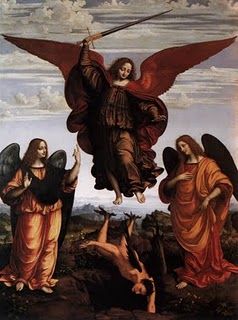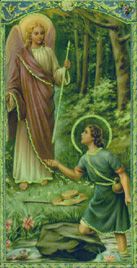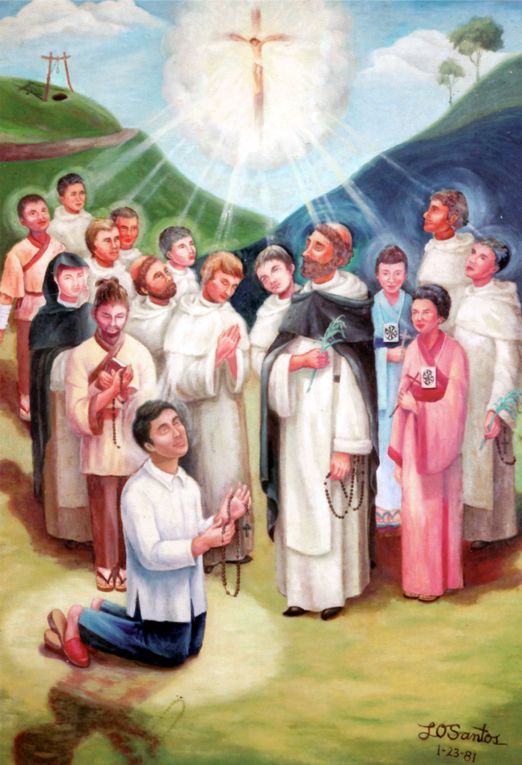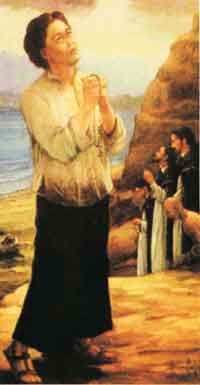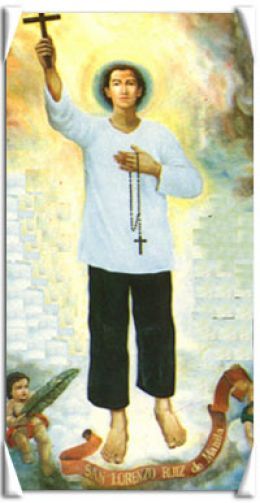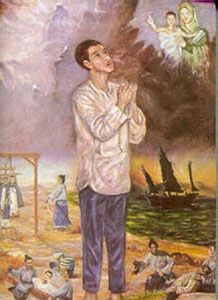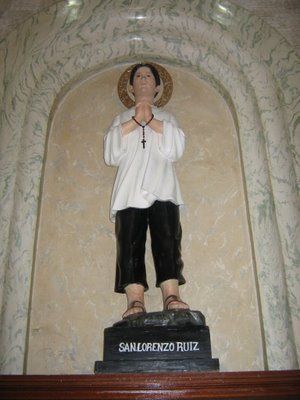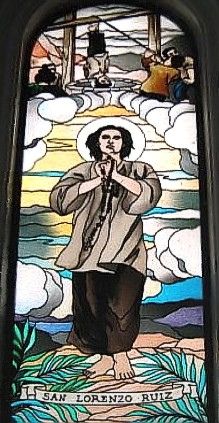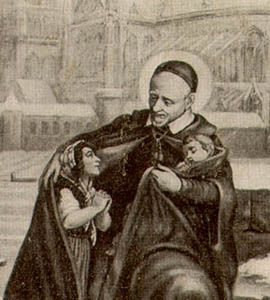Today, September 30, we celebrate the feast day of Saint Jerome (347-419), Father of the Church and Doctor of the Church. One of the great spiritual and theological minds of the faith, Saint Jerome has inspired countless saints and scholars, among them, Saint Augustine of Hippo who said: “What Jerome is ignorant of, no man has ever known.” The writings of Saint Jerome continue to unlock the meaning of the Scriptures for the faithful today, and the lessons from his life remind us that the Lord uses us each in our own way to glorify His name!
Jerome, who was born Eusebius Hieronymous Sophronius, was the was born at Stridonius, a small town at the head of the Adriatic, near the episcopal city of Aquileia. His father, a wealthy and well-respected Christian, took care that his son was well instructed at home, then sent him to Rome, where the young man's teachers were the famous pagan grammarian Donatus and Victorinus, a Christian rhetorician. In Rome, Saint Jerome read classical literature with great voracity, and became fluent in Latin and Greek. His aptitude for oratory was such that he may have considered law as a career. He acquired many worldly ideas, made little effort to check his pleasure-loving instincts, and lost much of the piety that had been instilled in him at home. Yet in spite of the pagan and hedonistic influences around him, and the dissolute lifestyle he had embraced, Jerome was baptized by Pope Liberius at the age of 19. Drawn to Church history, he frequently spent time in the tombs and catacombs, deciphering the descriptions that adorned holy men and women’s’ tombs. He recorded, "it was my custom on Sundays to visit, with friends of my own age and tastes, the tombs of the martyrs and Apostles, going down into those subterranean galleries whose walls on both sides preserve the relics of the dead."
Shortly after his baptism, he journeyed to Trier in Gaul and to Aquileia in Italy, where he began to cultivate his theological interests in company with others who, like himself, were ascetically inclined. In Antioch, where he was warmly received, he continued to pursue his humanist and monastic studies. He also had a profound spiritual experience, dreaming that he was accused of being "a Ciceronian, not a Christian." In his dream, Jerome was standing before the tribunal of Christ. "Thou a Christian?" said the judge skeptically. "Thou art a Ciceronian. Where thy treasure is, there thy heart is also."
Deeply shaken, Jerome determined to devote himself exclusively to the Bible and theology. Jerome moved to the desert of Chalcis, spending time in Palestine and marking with devotion each spot important to the life of Christ. While in the desert, he devoted himself to penance, and while practicing more rigorous austerities, pursued his studies, including the learning of Hebrew. In the Syrian desert, he lived for years as a hermit, and is reported to have removed a thorn from a lion’s paw. As holy legend tells us, the creature stayed loyal to Saint Jerome, living by his side for years.
In the desert of Chalcis Saint Jerome also experienced many attacks of illness, but suffered still more from temptation. "In the remotest part of a wild and stony desert," he wrote years afterwards to Saint Eustochium, "burnt up with the heat of the sun, so scorching that it frightens even the monks who live there, I seemed to myself to be in the midst of the delights and crowds of Rome.... In this exile and prison to which through fear of Hell I had voluntarily condemned myself, with no other company but scorpions and wild beasts, I many times imagined myself watching the dancing of Roman maidens as if I had been in the midst of them. My face was pallid with fasting, yet my will felt the assaults of desire. In my cold body and my parched flesh, which seemed dead before its death, passion was still able to live. Alone with the enemy, I threw myself in spirit at the feet of Jesus, watering them with my tears, and tamed my flesh by fasting whole weeks. I am not ashamed to disclose my temptations, though I grieve that I am not now what I then was."
On his return to Antioch in 378 he entered the priesthood, under the direction of Saint Gregory of Nazianzan.Upon ordination, Jerome returned to Rome, and was appointed the personal and confidential secretary and librarian to Pope Damasus I. Saint Jerome was tasked with translating the Bible into Latin, and was working obediently on his task when Damasus passed away. Jerome returned to the east, settling in Bethlehem in a monastery appointed by a group of wealthy Roman women (Saints Paula and Marcella). It was there, in Bethlehem, that the majority of his writing—including the completion of his Biblical translation (known as the Vulgate translation)—were completed. Jerome remained at the monastery for 34 years, until his death. The remains of his body now lie buried in the Basilica of Saint Mary Major in Rome.
Saint Jerome’s incorporation of science, philosophy, geography, and archeology into his scriptural exegesis raised the teachings of the Church to greater scholarship. His correspondence with noted saints and scholars—among them Saint Augustine of Hippo—are rich in encouragement and faith. Known for his difficult demeanor and oftentimes hot-temper, his scholarly contributions are all the more surprising. Despite these shortcomings, Saint Jerome’s love for God and his Son Jesus Christ was extraordinarily intense: anyone who taught error was an enemy of God and truth, and Jerome went after him or her with his mighty and sometimes sarcastic pen.
Jerome was a strong, outspoken man. He was a fearless critic of the immorality of man, while simultaneously acknowledging his own sins. He was no admirer of moderation-- whether in virtue or against evil. He was swift to anger, but also swift to feel remorse, even more severe on his own shortcomings than on those of others. A pope is said to have remarked, on seeing a picture of Jerome striking his breast with a stone, "You do well to carry that stone, for without it the Church would never have canonized you."
Saint Jerome contributed significantly to the doctrinal formation of the Church’s teachings. An active adversary to heresies rampant during the time, he successfully defended the faith, contributing to the solid foundation which we still profess today. The life and writings of Saint Jerome remind us that each of us has areas to improve upon, and yet, even with our flaws, the Lord continues to grace us with gifts and talents beyond our comprehension. Today, on the feast of Saint Jerome, we lift a prayer of thanksgiving to our generous and gracious Lord!
Prayer for Christ’s Mercy (written by Saint Jerome)
O Lord, show your mercy to me and gladden my heart. I am like the man on the way to Jericho who was overtaken by robbers, wounded and left for dead. O Good Samaritan, come to my aid, I am like the sheep that went astray. O Good Shepherd, seek me out and bring me home in accord with your will. Let me dwell in your house all the days of my life and praise you for ever and ever with those who are there.
Holy Writings of Saint Jerome:
Jerome, who was born Eusebius Hieronymous Sophronius, was the was born at Stridonius, a small town at the head of the Adriatic, near the episcopal city of Aquileia. His father, a wealthy and well-respected Christian, took care that his son was well instructed at home, then sent him to Rome, where the young man's teachers were the famous pagan grammarian Donatus and Victorinus, a Christian rhetorician. In Rome, Saint Jerome read classical literature with great voracity, and became fluent in Latin and Greek. His aptitude for oratory was such that he may have considered law as a career. He acquired many worldly ideas, made little effort to check his pleasure-loving instincts, and lost much of the piety that had been instilled in him at home. Yet in spite of the pagan and hedonistic influences around him, and the dissolute lifestyle he had embraced, Jerome was baptized by Pope Liberius at the age of 19. Drawn to Church history, he frequently spent time in the tombs and catacombs, deciphering the descriptions that adorned holy men and women’s’ tombs. He recorded, "it was my custom on Sundays to visit, with friends of my own age and tastes, the tombs of the martyrs and Apostles, going down into those subterranean galleries whose walls on both sides preserve the relics of the dead."
Shortly after his baptism, he journeyed to Trier in Gaul and to Aquileia in Italy, where he began to cultivate his theological interests in company with others who, like himself, were ascetically inclined. In Antioch, where he was warmly received, he continued to pursue his humanist and monastic studies. He also had a profound spiritual experience, dreaming that he was accused of being "a Ciceronian, not a Christian." In his dream, Jerome was standing before the tribunal of Christ. "Thou a Christian?" said the judge skeptically. "Thou art a Ciceronian. Where thy treasure is, there thy heart is also."
Deeply shaken, Jerome determined to devote himself exclusively to the Bible and theology. Jerome moved to the desert of Chalcis, spending time in Palestine and marking with devotion each spot important to the life of Christ. While in the desert, he devoted himself to penance, and while practicing more rigorous austerities, pursued his studies, including the learning of Hebrew. In the Syrian desert, he lived for years as a hermit, and is reported to have removed a thorn from a lion’s paw. As holy legend tells us, the creature stayed loyal to Saint Jerome, living by his side for years.
In the desert of Chalcis Saint Jerome also experienced many attacks of illness, but suffered still more from temptation. "In the remotest part of a wild and stony desert," he wrote years afterwards to Saint Eustochium, "burnt up with the heat of the sun, so scorching that it frightens even the monks who live there, I seemed to myself to be in the midst of the delights and crowds of Rome.... In this exile and prison to which through fear of Hell I had voluntarily condemned myself, with no other company but scorpions and wild beasts, I many times imagined myself watching the dancing of Roman maidens as if I had been in the midst of them. My face was pallid with fasting, yet my will felt the assaults of desire. In my cold body and my parched flesh, which seemed dead before its death, passion was still able to live. Alone with the enemy, I threw myself in spirit at the feet of Jesus, watering them with my tears, and tamed my flesh by fasting whole weeks. I am not ashamed to disclose my temptations, though I grieve that I am not now what I then was."
On his return to Antioch in 378 he entered the priesthood, under the direction of Saint Gregory of Nazianzan.Upon ordination, Jerome returned to Rome, and was appointed the personal and confidential secretary and librarian to Pope Damasus I. Saint Jerome was tasked with translating the Bible into Latin, and was working obediently on his task when Damasus passed away. Jerome returned to the east, settling in Bethlehem in a monastery appointed by a group of wealthy Roman women (Saints Paula and Marcella). It was there, in Bethlehem, that the majority of his writing—including the completion of his Biblical translation (known as the Vulgate translation)—were completed. Jerome remained at the monastery for 34 years, until his death. The remains of his body now lie buried in the Basilica of Saint Mary Major in Rome.
Saint Jerome’s incorporation of science, philosophy, geography, and archeology into his scriptural exegesis raised the teachings of the Church to greater scholarship. His correspondence with noted saints and scholars—among them Saint Augustine of Hippo—are rich in encouragement and faith. Known for his difficult demeanor and oftentimes hot-temper, his scholarly contributions are all the more surprising. Despite these shortcomings, Saint Jerome’s love for God and his Son Jesus Christ was extraordinarily intense: anyone who taught error was an enemy of God and truth, and Jerome went after him or her with his mighty and sometimes sarcastic pen.
Jerome was a strong, outspoken man. He was a fearless critic of the immorality of man, while simultaneously acknowledging his own sins. He was no admirer of moderation-- whether in virtue or against evil. He was swift to anger, but also swift to feel remorse, even more severe on his own shortcomings than on those of others. A pope is said to have remarked, on seeing a picture of Jerome striking his breast with a stone, "You do well to carry that stone, for without it the Church would never have canonized you."
Saint Jerome contributed significantly to the doctrinal formation of the Church’s teachings. An active adversary to heresies rampant during the time, he successfully defended the faith, contributing to the solid foundation which we still profess today. The life and writings of Saint Jerome remind us that each of us has areas to improve upon, and yet, even with our flaws, the Lord continues to grace us with gifts and talents beyond our comprehension. Today, on the feast of Saint Jerome, we lift a prayer of thanksgiving to our generous and gracious Lord!
Prayer for Christ’s Mercy (written by Saint Jerome)
O Lord, show your mercy to me and gladden my heart. I am like the man on the way to Jericho who was overtaken by robbers, wounded and left for dead. O Good Samaritan, come to my aid, I am like the sheep that went astray. O Good Shepherd, seek me out and bring me home in accord with your will. Let me dwell in your house all the days of my life and praise you for ever and ever with those who are there.
Holy Writings of Saint Jerome:
Selected Writings of Saint Jerome:
From a letter of Saint Jerome to Saint Eustochium: “In the remotest part of a wild and stony desert, burnt up with the heat of the scorching sun so that it frightens even the monks that inhabit it, I seemed to myself to be in the midst of the delights and crowds of Rome. In exile and prison to which for the fear of hell I had voluntarily condemned myself, I many times imagined myself witnessing the dancing of the Roman maidens as if I had been in the midst of them: in my cold body and in my parched-up flesh, which seemed dead before its death, passion able to live. Alone with this enemy, I threw myself in spirit at the feet of Jesus, watering them with my tears, and I tamed my flesh by fasting whole weeks. I am not ashamed to disclose my temptations, but I grieve that I am not now what I then was.”
“The measure of our advancement in the spiritual life should be taken from the progress we make in the virtue of mortification; for it should be held as certain that the greater violence we shall do ourselves in mortification, the greater advance we shall make in perfection.”
“You say in your book that while we live we are able to pray for each other, but afterwards when we have died, the prayer of no person for another can be heard…. But if the apostles and martyrs while still in the body can pray for others, at a time when they ought still be solicitous about themselves, how much more will they do so after their crowns, victories, and triumphs?”
“I interpret as I should, following the command of Christ: “Search the Scriptures,” and “Seek and you shall find.” For if, as Paul says, Christ is the power of God and the wisdom of God, and if the man who does not know Scripture does not know the power and wisdom of God, then ignorance of Scriptures is ignorance of Christ. No one should think that I mean to explain the entire subject matter of this great book of the prophet Isaiah in one brief sermon, since it contains all the mysteries of the lord. It prophesies that Emmanuel is to be born of a virgin and accomplish marvelous works and signs. It predicts his death, burial and resurrection from the dead as the Savior of all men. Whatever is proper to holy Scripture, whatever can be expressed in human language and understood by the human mind, is contained in the book of Isaiah.”
Year 2: Day 273 of 365
Prayer Intentions: Spiritual and intellectual understanding of Scripture.
Requested Intentions: Business success, peace, health (E); Conversion and deliverance of those who suffer, increase in vocations (M); Financial security and safe housing (M); For a daughter (K); Conversion of a family, deliverance of the souls in Purgatory (S); Successful marriage (A); Health, safety, grace, success of a building project (A); Successful treatment and recovery from cancer (D); Clear speech for a child (C); Conversion of a family (A); Successful employment (S); For the healing of impaired vision (F); For a couple experiencing difficulties (L); Successful employment after finishing college (M); Mother’s health (A); Financial security, freedom from anxiety (S); For a son and cousins (L); Peace and civility (B); Successful examination results (D); Safety of family, strength, courage, wisdom (C); For the souls of a departed father and brother, finding of a suitable marriage partner (R); Successful pilgrimage, deepening of prayer life (R); Restoration of health (J); Restoration of health (S); Freedom from pride (A); For children and marriage (M); For the birth of a healthy baby (Y); For personal family intentions, for the sick, poor, hungry, and homeless (G); Financial security and peace (J); Grace, peace, and obedience to the will of God in a marriage (H); Successful and blessed marriage for sin, freedom from anxiety for husband, spiritual contentedness for family (N); Employment and health for a husband (B); Recovery and health of a mother (J); For a family to grow closer to the Church, salvation for all children (D); Successful employment (L); Successful employment (S); Renewal of faith life (A); Support for an intended marriage, health for friend and aunt (J); Mental health assistance for son (G); Freedom from illness (S); Successful employment (C).

















